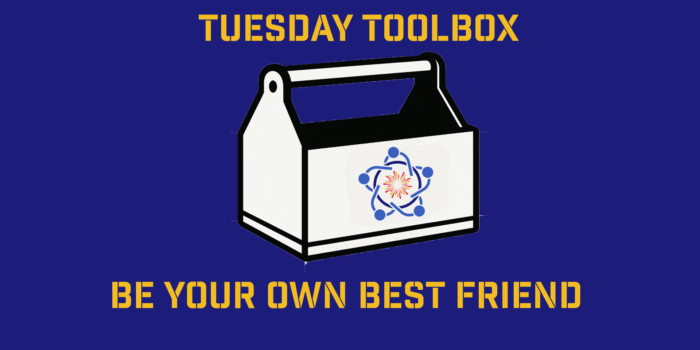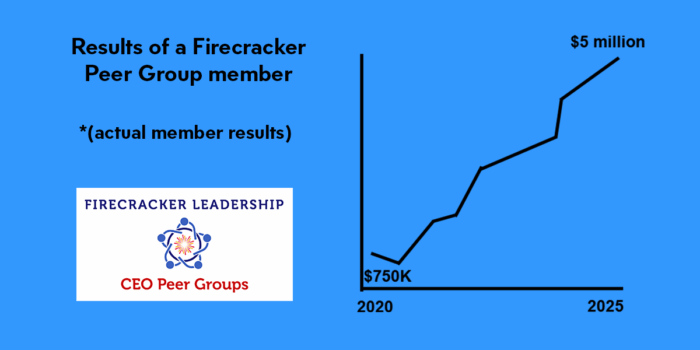My Wednesday Wish for You: To Be Your Own Best Friend We often push ourselves harder than anyone else ever…
This Inc article shares 10 rules to increase your EI.
Over the years, thousands of readers have reached out with that question. They know that emotional intelligence, the ability to understand and manage emotions, is an invaluable quality that can make them better leaders and collaborators, make them more productive, and improve their relationships with others.
To help readers build their emotional intelligence, I started developing a toolbox; I like the to call the tools in it “the rules of emotional intelligence.” These are more principles or guidelines than strict rules, but putting them in this format helps others not only to remember them, but also to actually start using them.
Here are 10 simple rules that will help you build your own emotional intelligence. If you find value in them, check out my free seven-day course.
1. The Rule of Rewiring
There’s a common misconception that the adult brain is static, or lacks the ability to change. But in recent years, scientists have discovered that this isn’t true; rather, the brain has a remarkable property called neuroplasticity.
Neuroplasticity is the brain’s ability to make changes. And better still is that you can play a part in this: Through a combination of concentrated thought and purposeful actions, you can actually “reprogram” your brain and your emotional reactions.
Doing so involves a three-step method:
1. Motivate
2. Practice
3. Apply
2. The L.A.U.G.H. Rule
If you suffer from imposter syndrome, you’d benefit from the L.A.U.G.H. rule. It rejects the common advice to “fake it until you make it.” Instead, it encourages you to embrace a growth mindset, on sharing your journey, and on honing your unique voice.
The L.A.U.G.H. rule goes like this:
1. Learn
2. Apply
3. Understand
4. Grow
5. Help.
3. The Clean Desk Rule
There’s a scientific argument for taking time to clean up your desk (or office, or closet, or room) before starting your day. That’s because when you try to accomplish something, every obstacle that stands in your way makes your task harder.
Taking a few minutes to clean up and get organized helps you to think more clearly, which, in turn, leads to emotional well-being. Additionally, the accomplishment of cleaning up gives you self-confidence and motivation that can propel you through your day.
4. The Maya Angelou Rule
What I call the Maya Angelou rule is actually a quote that is often attributed to the famous poet and author. It goes like this:
“People will forget what you said. People will forget what you did. But people will never forget how you made them feel.”
Interestingly, research says this quote may have originated from someone other than Ms. Angelou. But whether or not she originated it, she certainly lived it. When it comes to your relationships, remembering this quote can help you see the big picture and build stronger connections.
5. Be Authentic Without Being Toxic
True authenticity demands that you say what you mean, mean what you say, and stick to your values and principles. But your personality can get in the way of you doing this in a respectful way.
For example, if you’re highly agreeable, you may be a natural peacemaker and have a high degree of empathy–but your willingness to keep the peace can also make you hide “disagreeable” feelings or say things you don’t really mean. You may avoid difficult–but necessary–conversations, like when it comes to giving constructive criticism.
In contrast, if you rank low on the agreeableness spectrum, you have no problem “keeping it real” and pushing people out of their comfort zone. But you’re also in danger of developing a reputation for always questioning or being critical of others, and people will stop listening to what you have to say.
So, whether you lean toward being agreeable or disagreeable, you have to work to leverage your strengths and mitigate your weaknesses. If you’re more agreeable, force yourself to speak up when it may not be comfortable, but when it is needed. And if you’re less agreeable, work hard to say things in a way that others will not only understand, but also be willing to take seriously and see as efforts to help, and not harm.
6. The Gift of Time
Living in an era where everything is battling for your attention, it’s especially important to live with intention when it comes to your time. Additionally, research indicates that giving time to the people you value not only makes them happier, but makes you happier, too.
It’s this research that inspired the “gift of time.”
This week, pick a person you’d like to give some of your time to, and then plan to do something with that person that you wouldn’t do normally. It could be having a meal or coffee together, a surprise visit, going for a walk, or even a virtual 1:1 call.
Each of these gifts of time is relatively simple, but all go a long way in strengthening your relationships.
7. The Security Blanket
Anyone who has small children knows that a child needs to feel safe and secure before they can be themselves.
But you and I are the same: Google spent years studying how to build better teams, and in doing so ranked psychological safety, an environment that allows team members to speak their minds and express themselves freely, as the number-one factor contributing to team effectiveness.
The problem, of course, is you are often thrust into environments that make you feel anything but safe. That’s why you need a “security blanket”: a person, place, or thing that gives you the strength and confidence you need to be yourself, and be your best.
8. The Rule of Persuasion
The rule of persuasion is founded on the quality of empathy, and the emotionally intelligent principles that guide how that quality works.
To reason with empathy, you must:
1. Ask strategic questions
2. Provide the right kind of evidence
3. Know when to yield
This kind of persuasion and influence doesn’t involve manipulation or trickery. Rather, it’s focused on education and creating a partnership with the other person.
9. The Rule of Rejection
The rule of rejection was inspired by Jia Jiang, an entrepreneur who turned repeated refusals into a quest to overcome his own fear of rejection.
The rule is made up of three parts:
A. Don’t reject yourself. Try.
B. If the answer is no, ask why. This may lead to your getting what you wanted, or getting something else that’s close.
C. Remember that rejection doesn’t define you. It’s the way you react to rejection that defines you.
Following these three simple steps will help you start turning no into yes–and completely change the way you view rejection, forever.
10. The Don’t Panic Rule
Panic is defined as “sudden uncontrollable fear or anxiety, often causing wildly unthinking behavior.”
Fear is natural, and can be healthy. Panic, on the other hand, prevents reason and logical thinking. It can paralyze you, or lead you to a decision you later regret.
So, how can you face your fears without panicking? You must learn to control your thoughts.
Rather than allow yourself to become paralyzed, you must practice self-awareness: Acknowledge your natural emotional and physical reaction. Doing this allows you to then exercise self-management (self-control): Focus your thoughts on what is helpful in the situation using techniques like the milk carton rule.
BY JUSTIN BARISO, AUTHOR, EQ APPLIED@JUSTINJBARISO



